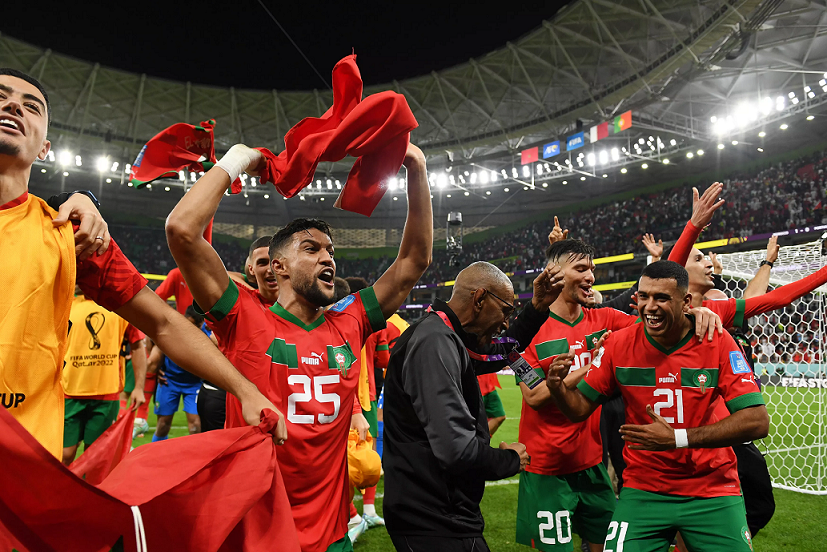
Qatar 2022 may have passed, but the tournament will remain a part of football history after being voted the best since the World Cup began in 1930.
The 2022 edition was Africa’s most successful attempt from a statistical standpoint, measured in terms of points scored per game.
After suffering its worst World Cup in 2018, when Africa failed to reach the second round for the first time since 1982, the continent rebounded in spectacular fashion in Qatar.
Led by the spirited performance of Morocco, Africa’s five representatives delivered the continent’s finest World Cup in history, challenging the traditional elite of the marquee competition.
Going nearly all the way, Morocco’s fairytale journey added another page to the dramatic story of African nations after they became the first to reach the last four.
The Atlas Lions topped their group, beating Belgium before dispatching Spain and Portugal all ranked in the world’s top 10.
Prior to Morocco’s sensational run, Africa which officially finished fourth had never gone past the quarterfinals, with Cameroon in 1990, Senegal in 2002 and Ghana in 2010.
The cheers for Morocco’s exploit was so loud that earned it the name Giant Killers at the Qatar party.
Much more again in keeping with most of their performances, the world will remember the North African country for only conceding an own goal in the course of the tournament before they lost to France in the semis; but had made history nevertheless.
Other high profile results that etched the continent’s image into the tournament’s illustrious history were Cameroon and Tunisia’s wins.
For proper context, it is worth remembering that France, World Champions at the time and eventual finalists, losing to Tunisia was probably the biggest shock of Qatar 2022.
Cameroon, too showing the kind of mettle needed when they stunned 5-time Champions and World number 1, Brazil is another story in itself.
Qatar 2022 also shone a spotlight on the success of homegrown Coaches.
For the first time, the five African teams on parade were all managed by Africans, putting fully on display the level of the continent’s football.
Little wonder when Coach Otto Oddo who managed the Ghanaian team in Qatar said the success of African Coaches was a start of a key moment that could change the perception of Africans rooted in long-standing preference for foreign Coaches.
Surely, Morocco’s huge possibility in Qatar gives a broader sense of a real breed of Sports policy at home.
First woman to officiate
Having been the first woman to officiate in the men’s Africa Cup of Nations, nonetheless, Rwanda’s Salima Mukansanga achieved her own piece of history in Qatar when also becoming the first female fourth official at the men’s World Cup.
With FIFA saying it is selecting the best referees regardless of gender, Mukansanga’s elevation provides yet further inspiration for African women.
Not also unconnected to the World Cup in Qatar is African trio of Achraf Hakimi, Sadio Mane and Mohamed Salah who only a few days ago were named in FIFA’s list of 14 players up for the men’s best player award of the year scheduled for February 2023.
This is not just to create a voice for Africa, it symbolizes African might and prospect at the World Cup.
Moment of African soccer was always about to arrive
Ultimately, African teams at the mundial proved that they deserved their seats at the main table.
Even FIFA President, Giani Infantino could not conceal his emotions in Qatar when he said the moment of African soccer was always about to arrive.
It is hoped that Africans in the diaspora will be convinced that there is always merit in flying the flag of the country of their origin.
Given the good image of Africans football-wise and the continental confidence collected in Qatar, Morocco has now been chosen as the host of the FIFA Club World Cup in February.
This decision in the final analysis speaks volume of all that was good about Africa in Qatar.
However, the real story that lies ahead is that FIFA looks to expand the number of teams at the World Cup from 32- 48.
It could well become a turning point in Africa’s World Cup history as the continent hopes for more slots at the 2026 edition to be co-hosted by Canada, Mexico and USA.
RN